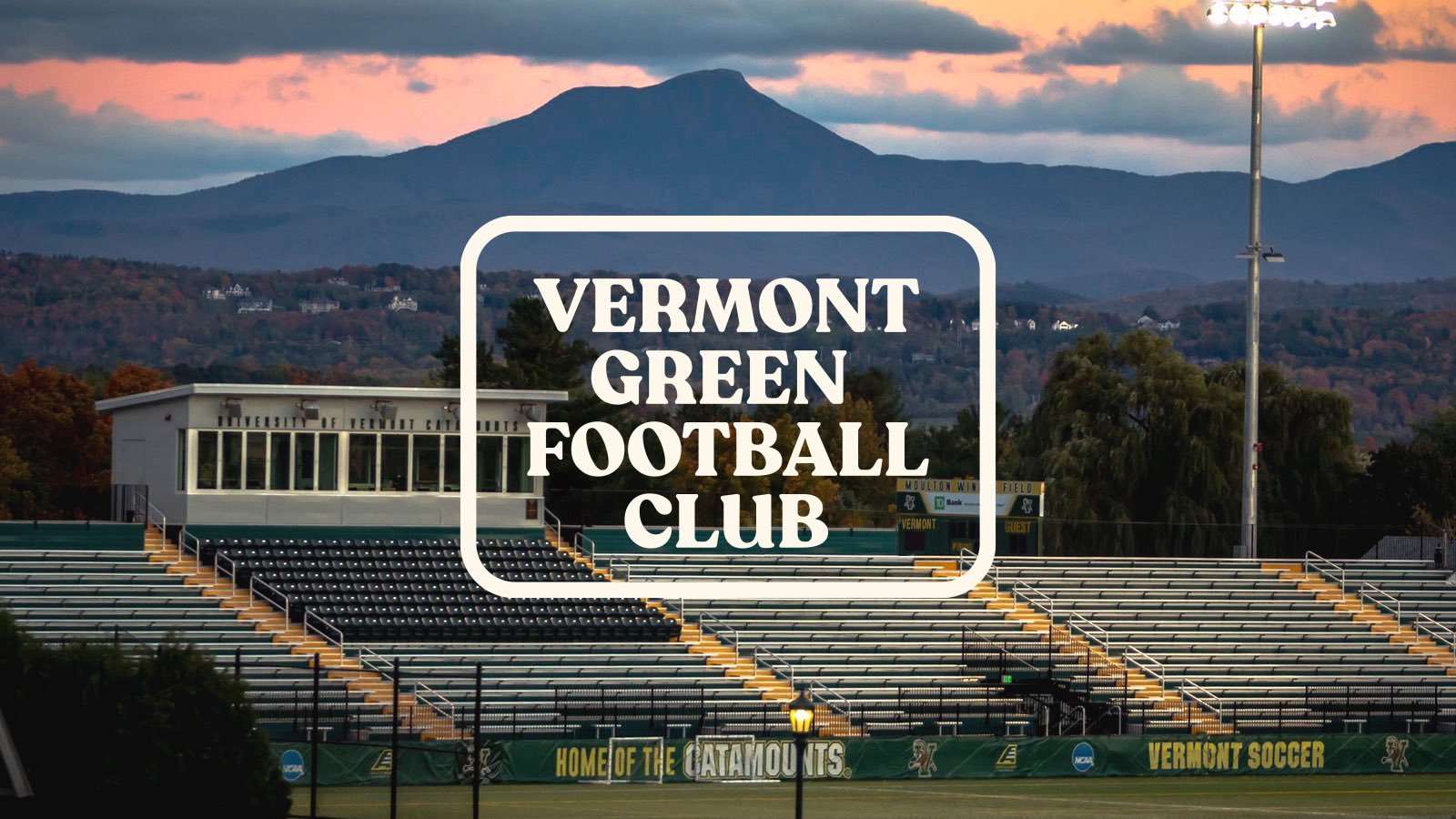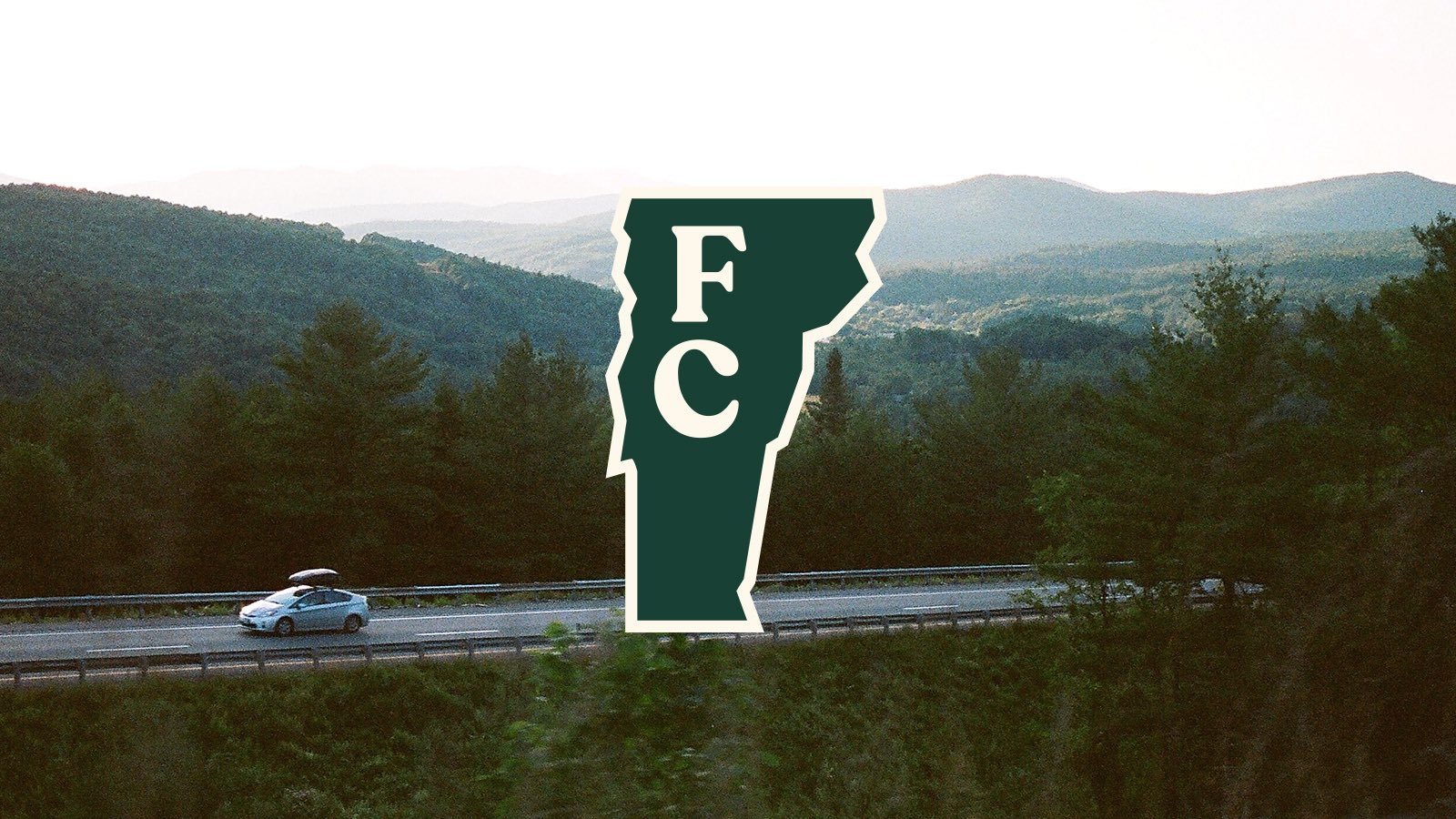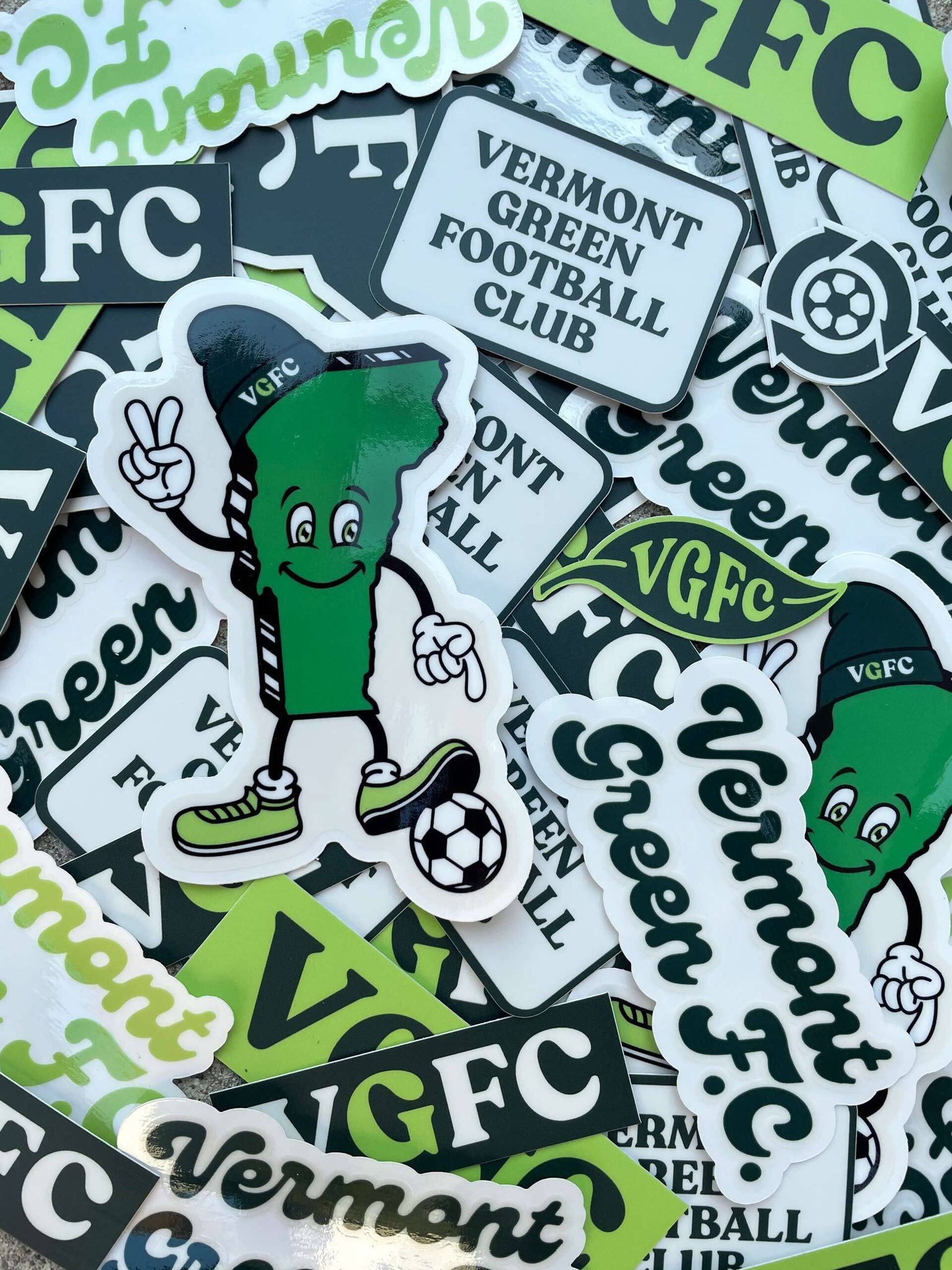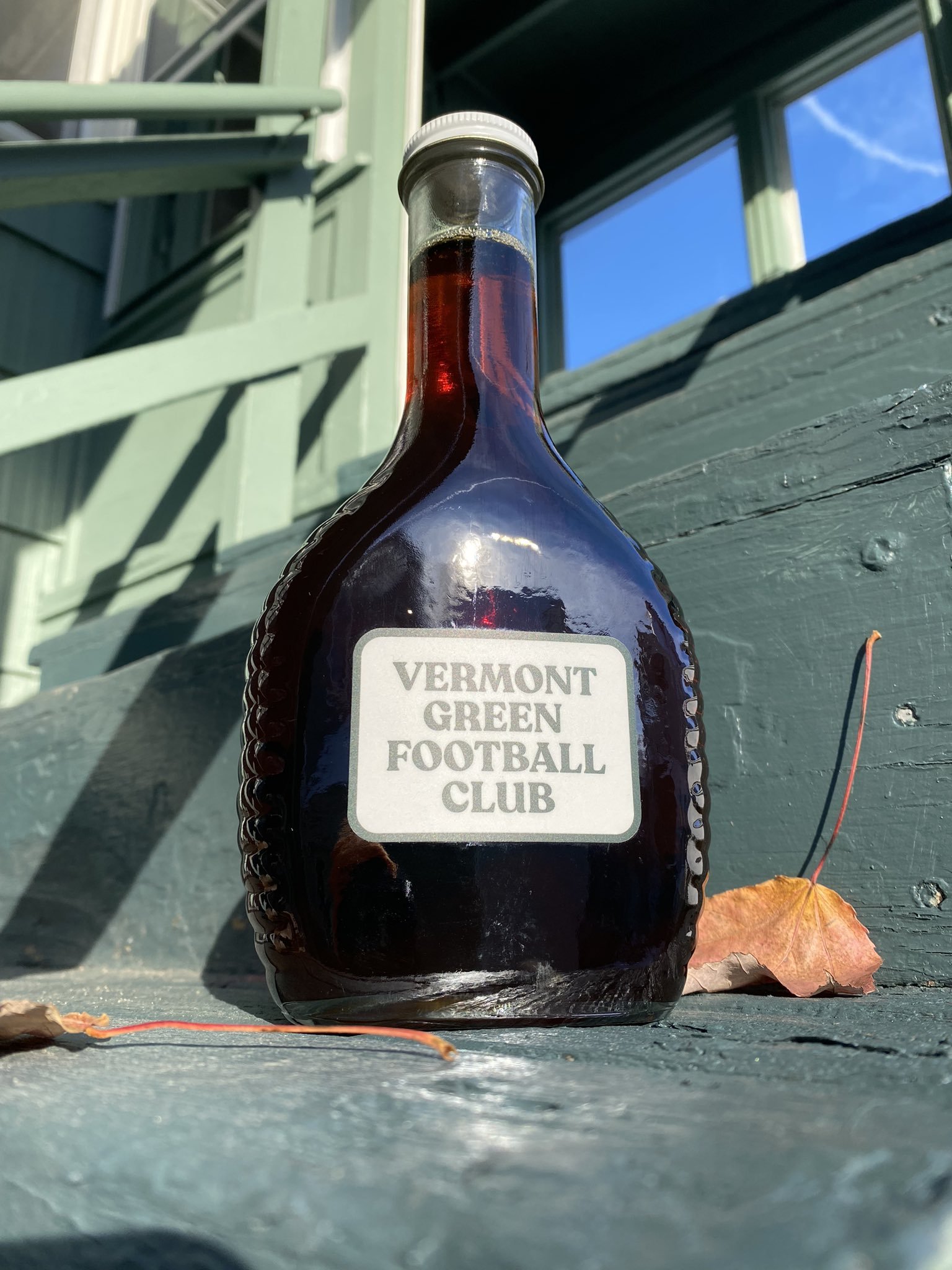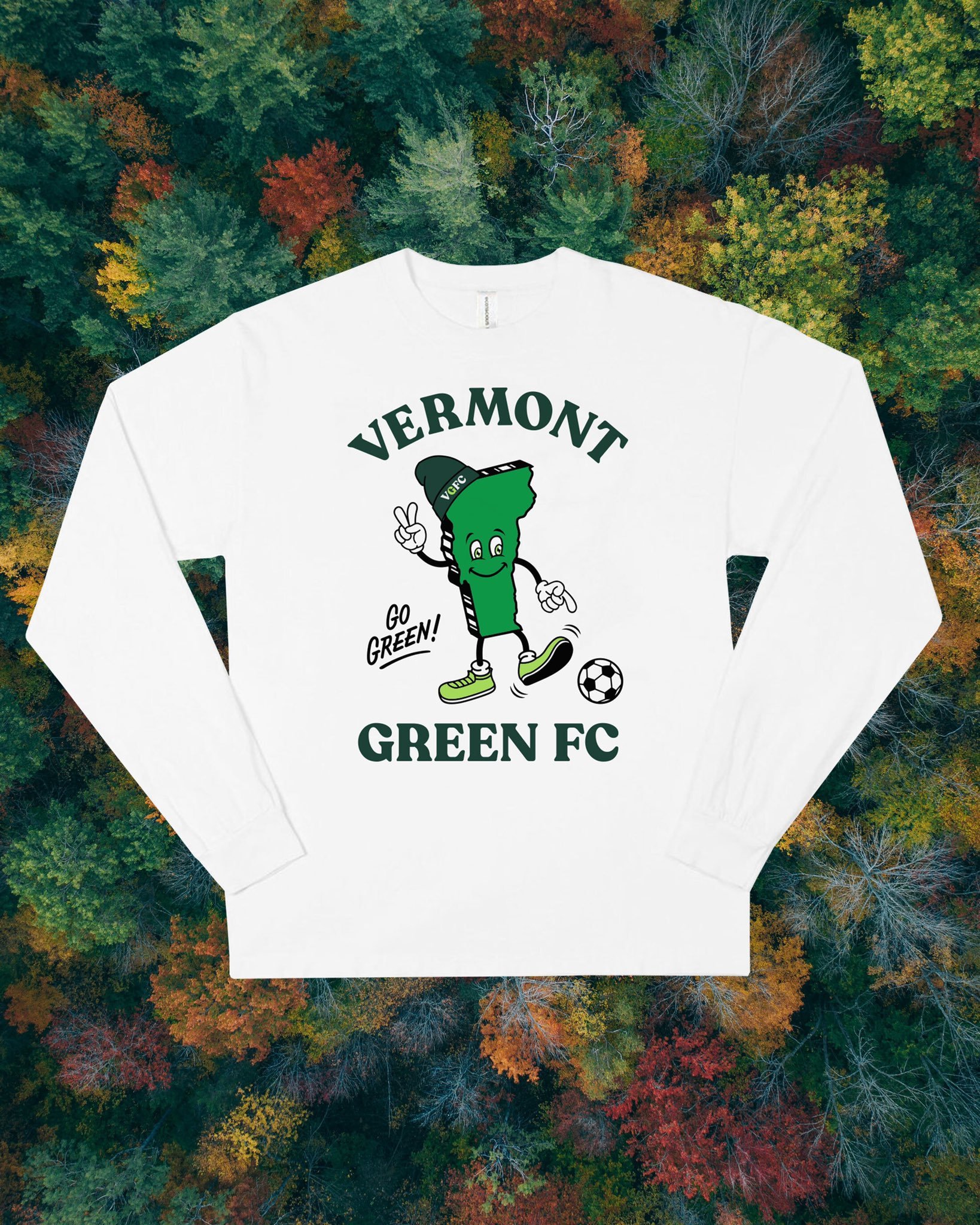The Culture Division meets Vermont Green FC: Environmental Justice in the Green Mountain State
“Our club aims to reflect the life-affirming aspects of football, and leverage this passion not just in the sporting side, but off-pitch as well through our mission to promote environmental justice.”
As the United Nations’ Climate Change Conference drew to an underwhelming close, the battle to save our planet from exceeding catastrophic levels of warming has reached a critical point. Here at The Culture Division, we rightly consider our climate emergency to be the most pressing issue today. It is now beyond the point of individual action; wider, systemic changes to our governments, institutions and corporations are required. Whether you believe COP26 achieved a sufficient level of action or not, it is clear that our sport needs to play its part.
Enter Vermont Green Football Club. A brand new club based in the serenity of the Green Mountain State itself. Joining the USL League Two, their inaugural season kicks off in May 2022.
To learn more about their ambitions, their objectives, and how they plan to use the power of soccer to set new standards of environmental justice, we spoke to two of their co-founders, Matthew Wolff and Keil Corey.
We’re so excited about your new project. Has it been long in the making?
MW: We first dreamt of this idea about 18 months ago, at the start of COVID-19 lockdown. Our founding team is a group of friends who share a love of soccer, Vermont, and our planet.
Could you explain, to those that aren’t aware, why soccer is a huge source of pollution and environmental decline?
KC: We believe it’s important to first acknowledge the strengths of football, which is central to our theory of change and why we believe it’s one of best platforms in the world to advance environmental stewardship and social justice. Over half of the world’s population follows the sport to some degree, as reflected in the viewership of the World Cup. It’s a central part of communities and culture around the world, and transcends differences in language, nationality, religions, and socio-economics - it’s truly the people’s game. It’s also the beautiful game, reminding all of us of what it feels like to be fully alive and connected to one another, or utterly devastated and bordering on misanthropy when our team loses to our rivals. It really is a beacon of hope for so many of us, often turning the impossible into the possible. Our club aims to reflect these life affirming aspects of football, and leverage this passion not just in the sporting side, but off-pitch as well through our mission to promote environmental justice.
As for football’s contribution to environmental degradation, like other massive industries, it of course plays a sizable role. Transportation, energy and water consumption, waste management, and the pollution that comes with all of that is something that the global game will need to account for to address our most pressing global challenges. These crucially include the very tight timeline of less than a decade to halve global emissions, which climate scientists say is required to avoid causing our planet to warm beyond 1.5C and seal a future of irreversible climate change. Moreover, we use considerable resources in producing gear, kits, and apparel to satisfy the significant demand from sports organizations and their supporters. This doesn’t just have an environmental impact, but also can create a significant burden on the lives and livelihoods of the people in the supply chains who make those products. Of course, not all sports operations are the same, not all apparel is the same, and there are some bright spots in the industry where environmental stewardship and social justice is front and center in transforming the industry in the direction we desperately need to move in. But yea, we need football in this fight badly.
What is your ultimate goal? Do you hope to play in the MLS one day, or hope to change the soccer industry and its attitude towards climate change, or both?
MW: First and foremost, we hope to build a winning team, while showing how that can be done using a lens of environmental justice. The sporting side, just as much as the business side of our club will be engaged in our mission. Of course, we hope our humble little shop can also serve as an example and offer some actionable blueprints for other clubs who share our vision of a better future. We intend to grow the club through our on and off-pitch success in the years ahead and will consider expansion bids when and if they make sense. We know the people of Vermont would certainly love to see us move up the U.S. soccer pyramid in the years ahead.
You’re going to be part of a large expansion project in the USL League Two - how exciting is it to be part of the growing US soccer scene right now?
MW: Incredibly exciting. Soccer in the US is growing like crazy right now, with new clubs and new leagues popping up in every corner of the country. We’re thrilled to kick off our inaugural season in USL League Two. The league is fully supportive of our ambitions, both on and off the pitch.
Is it fair to say that the tradition of social justice and environmental campaigning in Vermont is the foundation behind your project?
KC: Yes. Vermont is well known as a leader in environmental stewardship and social justice. The landscape and communities reflect this. The public, private, and civil sectors have shown the way on so many fronts over the years: the state, NGOs, businesses, and utilities have led in research and execution of innovative ways to accelerate the adoption of energy efficiency and renewable energy. The state passed landmark legislation that legalized gay marriage and tipped an essential domino in making it the law of the land across our nation. In the 1960s, legislators passed the pionerring land use legislation of Act 250, setting a precident for smart growth that others would replicate in areas across the country. We can even go back to when the state was the first in a nascent U.S. to abolish slavery. There’s certainly a history of good people who, through fate and folly, had good intentions to make this place a community that truly considers the rights of all people. We continue to engage in a deeper conversation about what it means to act responsibly by stewarding the life-sustaining natural ecosystems we all rely on and benefit from for free. Of course, all of these examples have caveats in their imperfections, but they do set a tone for what the Vermonters have long prioritized and the collective vision most of us share here.
We’re sure you’re aware of Forest Green Rovers in the UK. Their ground is powered completely by renewable energy sources; their matchday menus are entirely vegan; their organic grass is irrigated with collected rainwater. Will you be embracing some of these ideas when you launch?
KC: Forest Green Rovers have certainly been an inspiration for us. What they’ve done and continue to do to advance environmental sustainability is incredible and they’re leagues above the competition in that regard. We’re embracing a range of actions that in some ways are consistent with FGR and in other ways diverge. We are fortunate to call Burlington, VT our home, which is one of the first cities in the U.S. that sources 100% of its energy from renewable sources. Again, we benefit from a history of forward thinking in our home town. We have already developed a line of merchandise that adheres to incredibly high environmental and social responsibility standards, and we are excited to say we have a line of sight towards developing a fully circular apparel offering in our first season, allowing supporters to keep their garments out of landfills and be used again in our inventory. I’m not aware of any other club doing that. We have also committed to becoming net zero by the end of our first season and are going through the process to become a signatory to the U.N.’s Sports for Climate Action initiative. We’ve also become a 1% for the Planet member, committing 1% of our annual sales to organizations that align with our environmental justice mission. There is a lot more coming in the months ahead, including sustainable transportation solutions, sporting side environmental justice initiatives, strategic partnerships with mission-aligned sponsors, and community building initiatives with mission-aligned organizations. We also are in the early planning phase of matchday activitations with local businesses, non-profits, farms, music and arts community, and much more to truly embed environmental justice at each of our matches. Many more announcements in the months ahead, so stay tuned!
Can you give us a sneak peek of your Green Roadmap?
KC: You can expect that in everything we do there will be a direct connection to environmental justice, ensuring that the environmental burdens and benefits are equally shared among all of us. We are prioritizing the people that historically and presently are disproportionately impacted by environmental and health hazards, particularly low-income and BIPOC communities. By centering these communities in all of our decision-making, we open ourselves up to an amazing community of co-creators who are helping us develop the solutions that are most effective in addressing the interrelated environmental and social justice challenges that loom large.
Briefly, here are some things to keep your eyes on: As noted already, you can expect to see apparel and kits that consider environmental justice criteria; a net zero plan that is as much about netting out our greenhouse gas footprint as it is providing solutions for communities disproportionately impacted by climate change; various community initiatives aligned with our mission; sustainable transportation solutions; mission-aligned strategic corporate partnerships; tons of educational content; and, matchday environmental justice initiatives. The truly wonderful thing about having a purpose beyond sport and beyond profits is it brings a lot of interesting connections and ideas to the table that would have never been there before. We’re humbled by the response so far and expect we’ll have some pretty interesting and novel stuff to talk about in the months ahead and throughout the first season.
How important is it that more clubs embrace environmental justice and sustainability?
KC: It’s absolutely essential and it’s a big reason why we’re doing this. As mentioned, football has a considerable global footprint in terms of people engaged in consuming its culture, products, and services. This can be leveraged for good or bad. So, of course we have to clean up our mess, which includes getting serious about our greenhouse gas emissions and the host of other major challenges: biodiversity loss, clean and potable water, poverty, malnutrition and hunger, and the like. But we also have to create the clubs and businesses of the future by showing what’s possible. We do this by being accountable to our environment and society, which drives inclusive innovation and new business models that bring about financial sustainability and enduring and resilient relationships with our community - things that are needed for any business to thrive in our rapidly changing world. We hope others will hear the call not just from us, but all of their stakeholders, and choose to transform. Of course, we’re happy to be a support to any club, organization, or league seeking to make this transition.
Tell us how people can get involved.
MW: Find us at our website, vermontgreenfc.com and our social channels listed below. Folks can also reach out to us by emailing club@vermontgreenfc.com.
Twitter: @VermontGreenFC
IG: @vermontgreenfc
Facebook: @VermontGreenFootballClub
Matthew Wolff and Keil Corey are two of a number of co-founders of Vermont Green. VGFC are now taking deposits on season tickets for the start of the 2022 season. Visit their website for more details.



